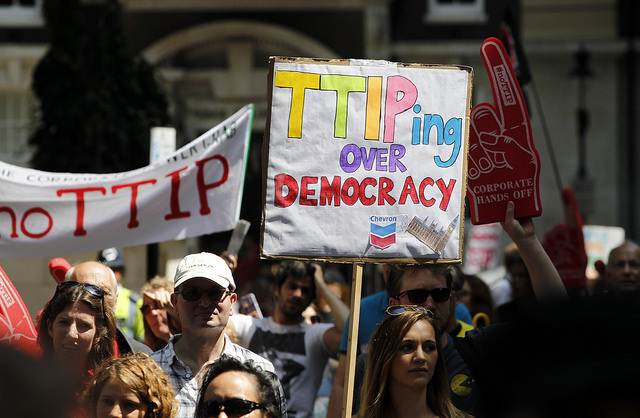Green growth advocates praise resource efficiency for its potential to incentivize the economy and lower its ecological impact. On the other hand, the Jevons Paradox, describes multiple situations (or rebound effects) in which increased efficiency leads to further consumption (either direct or indirect) which offsets the initial ecological benefits achieved. In this piece, I join this discussion by exploring a resource efficiency strategy, achieved through investment in labour (not technology), in which ecological benefits are obtained and rebound effects avoided.
This discussion is based on interviews conducted with the founders and managers of two enterprises in Sweden. The two cases analysed are restaurants (A and B) that prepare meals based on ingredients donated by supermarkets and farms, and by purchasing unwanted ingredients (mainly due to aesthetic reasons) from suppliers. Both cases display traditional capitalistic traits (e.g. privately owned, employ waged labour, sell products in the market and generate revenues).
A type of efficiency (in practice)
Based on the interviews conducted, I learned that both cases benefited from lower costs (compared to traditional restaurants) based on free or cheaper ingredients; however, the cost advantage was countered by an increase in salary costs, since they require more employees for handling and collecting all the ingredients and adapting their menu every day. Therefore, there was no possibility for A and B to provide customers with a significant price reduction.
Furthermore, based on their position in the supply chain (as recipients of food waste from other members of the supply chain) they understand that owners from conventional supermarkets and restaurants have no incentive in reducing their food waste (which can also be interpreted as increasing resource efficiency). This is explained because the cost of disposing 1 ton of food as waste is insignificant compared to the cost of an additional employee, which might be required to manage the donation process of ingredients for organizations such as A and B.
The cases analysed highlight two important aspects to be considered when assessing an efficiency strategy. On the one hand, understanding which factor is increasing efficiency (e.g. material, energy, labour) and through what means (e.g. investment in technology or labour). On the other hand, exploring if there is a real cost reduction and a price decrease associated with efficiency. These two aspects are briefly discussed.
Factors increasing efficiency
While some enterprises might sacrifice material efficiency (e.g. generate unnecessary food waste) for the sake of labour efficiency (e.g. running their enterprise with the least amount of employees possible), the cases analysed (A and B) chose to increase their material efficiency by investing in labour force. From a
Marxist perspective, this behaviour is particularly radical since it goes against one of the main mechanisms for capital accumulation, which is the increasing the proportion of investment in fixed capital (technology) compared to variable capital (wages). In other words, increasing material efficiency through investment in labour can be interpreted as an anti-capitalist behaviour. However, as pointed out by
Jackson (2009), our current taxation system places the highest tax burden on labour, which sets the conditions for enterprises to focus on labour productivity and not material, energy or pollution efficiency.
Potential cost reduction
Rebound effects from increased efficiency are tied to the “income effect”, in other words, the increased consumption (direct or indirect) derived from prices reductions allowed by efficiency. The analysis of the cases shows that labour investment offsets the cost reductions achieved by material efficiency, effectively avoiding a rebound effect. In the hypothetical situation in which A and B could offer a significant lower price due to their cost advantage, then it would become relevant to address trade-offs between priorities, for example: reducing prices to increase competitiveness and consolidate their position in the market vs maintain prices and raise wages. These are complicated trade-offs which their answer is not easily obtained.
Conclusion
The “business model” followed by A and B can help shed light into some nuances in the discussion of efficiency as a production strategy. Furthermore, just as
Petridis argued, practices and institutions grounded in the current system can “
prefigure and embody an alternative form of social relations”. Cases such as the ones presented here can help as inspiration for anti-capitalistic behaviour, while at the same time allowing the survival of an enterprise in a capitalistic system.
